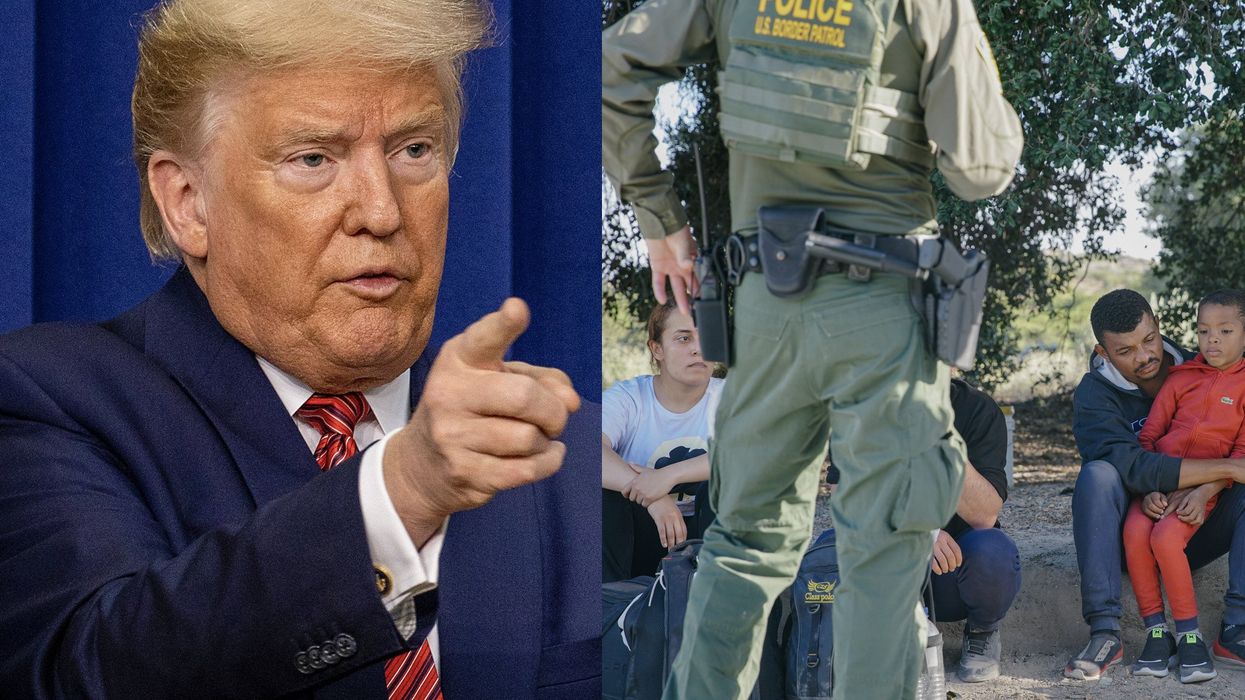President Trump cannot use the 18th-century Alien Enemies Act to quickly deport a group of suspected Venezuelan gang members currently being held in Texas, the Supreme Court ruled Friday.
In an unsigned order, the justices ruled that the South Americans should remain in the US while lower courts decide how far in advance migrants must be informed of their removal.
Friday’s ruling follows an April 19 order that also blocked quick deportations under the 1798 law, invoked by the administration earlier this year.
“We did not on April 19—and do not now—address the underlying merits of the parties’ claims regarding the legality of removals under the AEA,” the majority opinion read, noting at the very end that the government could still deport the migrants “under other lawful authorities.”
However, those removals would typically require notice and a chance to challenge their deportation in court.
The order cited the Trump administration’s inability to effectuate the return of alleged MS-13 gang member Kilmar Abrego Garcia, who was deported to his native in El Salvador in March despite a court order barring his removal to the Central American nation, as evidence of the gravity of the consequences at stake.
“The Government has represented elsewhere that it is unable to provide for the return of an individual deported in error to a prison in El Salvador … where it is alleged that detainees face indefinite detention,” read the opinion. “The [Texas] detainees’ interests at stake are accordingly particularly weighty.”
“Under these circumstances, notice roughly 24 hours before removal, devoid of information about how to exercise due process rights to contest that removal, surely does not pass muster.”
Conservative Justices Samuel Alito and Clarence Thomas noted their dissents from the order, while Justice Brett Kavanaugh authored a brief concurring opinion.
“From the Court’s order, it is not entirely clear whether the Court has silently decided issues that go beyond the question of interim relief. (I certainly hope that it has not.),” Alito wrote. “But if it has done so, today’s order is doubly extraordinary. Granting certiorari before a court of appeals has entered a judgment is a sharp departure from usual practice, but here neither the Court of Appeals nor the District Court has decided any merits questions.”
The case will now head back to the New Orleans-based Fifth Circuit Court of Appeals for further review. --->READ MORE HERE
 |
| Getty Images |
Attorneys for Venezuelan migrants won a temporary pause in their deportations.
The U.S. Supreme Court granted a temporary motion on Friday to pause deportations under the Alien Enemies Act of 1798 based on the lack of due process given to migrants.
The 7-2 ruling was issued unsigned, but Justices Samuel Alito and Clarence Thomas publicly dissented from the majority.
The lawsuit was filed by a group of Venezuelans from North Texas who were accused by the government of being gang members and thereby eligible for deportation without due process.
The court rejected a motion from the Trump administration to allow them to continue the deportation proceedings, and ruled that the government had not given the migrants the due process to challenge the deportations.
The ruling cited the case of Kilmar Abrego Garcia, where the administration said they had no power to return the man, despite admitting that his deportation was due to a clerical error.
The Supreme Court said that “the detainees’ interests at stake are accordingly particularly weighty," given that the Trump administration had been “unable to provide for the return of an individual deported in error to a prison in El Salvador.”
Alito dissented on the basis that the court had "no authority to issue any relief" so early in the litigation process. --->READ MORE HERE
If you like what you see, please "Like" and/or Follow us on FACEBOOK here, GETTR here, and TWITTER here.


No comments:
Post a Comment